By: Brian G. Chilton | May 15, 2018
When it comes to theology, many issues are not discussed among most ordinary Christians. For instance, few people will speak of the aseity of God on most Sunday mornings. However, when it comes to the issue of divine sovereignty and human freedom, the first theological question I get asked as a minister is; Are you a Calvinist or an Arminian? My answer muddies the waters for most because I respond by saying, “I am neither a Calvinist nor an Arminian.” “What?,” they reply, “You have to be one or the other.” I say, “Not necessarily. I am a Molinist.” The blank stares I receive says it all. “You are a what?!? A mole in mist?” “No,” I would say, “a Molinist.”
So, what is Molinism? This article will provide three answers. First, we will discuss the founder of Molinism. Second, we will discuss the acronym associated with Molinism. Finally, we will discuss the three areas of divine omniscience including middle knowledge.
- The origins of Molinism: Luis de Molina.
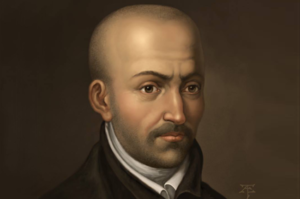
Molinism is derived from the theological works of 16th century Jesuit priest, Luis de Molina. While the Protestant Reformation was in full swing, Molina was sympathetic to the movement yet did not depart from the Catholic church. It appears that Molina may have known of Luther’s writings as well as Calvin’s. But, the primary theologian that Molina engaged was one Thomas Aquinas. Molina desired to come to a solution as to how one can understand how God’s sovereignty operated in a world where free creatures exist. While Calvin emphasized God’s sovereignty and Arminius emphasized human freedom, Molina sought to find a balanced approach. Thomas Aquinas held to both divine sovereignty and human freedom, but it was not certain how the two could blend. Molina would add a concept that would offer a solution.
- The acronym of Molinism: ROSES.
Calvinists have the famed (or infamous depending on whom you ask) TULIP. Arminians have the DAISY. Molinists have a flowery acronym, too. Molinists are true romantics at heart as their acronym is ROSES.
R = Radical depravity. Radical depravity takes the place of the Calvinist doctrine of total depravity. Radical depravity holds that humans are depraved to the point that they cannot save themselves. However, this depravity does not remove one’s divine image given to them by the Creator. Thus, the human being is unable to save oneself, however this does not mean that he or she could not respond to God’s grace when given.
O = Overcoming grace. Overcoming grace replaces irresistible grace. Rather than holding that a person cannot respond to God’s grace, Molinists hold that God’s grace is able to overcome the depraved human condition leading to a place where the person can respond positively or negatively to God’s free offer of grace.
S = Sovereign election. Sovereign election replaces the unconditional election portion of TULIP. Molinists hold that God knows each person so completely that he knows how each person will respond in certain circumstances (e.g., Pharaoh’s hardened heart in Exodus). Thus, God elects to save those whom he knows will respond to his grace, but this knowledge does not come from the person, but rather within the mind of God. God knows everything about everyone before anything was created. See point three for a further description of the Molinist’s view of divine sovereignty.
E = Eternal assurance. Rather than emphasizing the perseverance of the saints, which can be construed to mean that not everyone who makes a profession of faith will persevere, the Molinist (at least many Evangelical Molinists) holds that a person’s salvation is assured because of the working of God in the person’s salvation. God’s promises are always true.
S = Singular redemption. The last S of Molinism’s ROSES replaces limited atonement in TULIP. This doctrine holds that Christ’s death was powerful enough to cover the sins of the world, but only applies to those who respond to God’s grace by faith. Thus, Christ’s atoning work was sufficient to save the world, but efficient to save only the elect.
- The lynchpin of Molinism: Middle Knowledge.
Molinism deepens our understanding of God’s omniscience (that is, God’s knowledge). Thomas Aquinas posited that God had natural knowledge—knowledge of the potentials of the world (the way things operate)—and free knowledge—knowledge of what will come (otherwise known as simple foreknowledge. Molina asked, “How does God know what will come given the libertarian free will (that is, a person’s ability to choose x versus y) of free creatures?” Thus, he postulated that God has middle knowledge. Middle knowledge is the understanding of what free creatures would choose given certain circumstances. Molina emphasized that this understanding did not come from the world, but rather from within the mind of God. Molina states,
“It is not simply because things exist outside their causes in eternity that God knows future contingents with certainty; rather, before (in our way of conceiving it, but with a basis of reality) He creates anything at all, He comprehends in Himself—because of the depth of His knowledge—all the things which, as a result of all the secondary causes possible by virtue of His omnipotence, would contingently or simply freely come to be on the hypothesis that He should will to establish these or those orders of things with these or those circumstances; and by the very fact that through His free will He established in being that order of things and causes which He in fact established, He comprehended in His very self and in that decree of His all the things that were in fact freely or contingently going to be or not going to be as a result of secondary causes—and He comprehended this not only prior to anything’s existence in time, but even prior (in or way of conceiving it, with the basis of reality) to any created thing’s existence in the duration of eternity.”[1]
So, the three modes of divine knowledge in Molinism are:
- Natural knowledge. The way things could be.
- Middle knowledge. The way things would be given free decisions made in certain circumstances.
- Free knowledge. The way things will be in the future.
Molinism deepens our understanding of God’s omniscient knowledge. Given that God knows the length of days and the number of hairs on a person’s head (Lk. 12:7), it is not difficult to fathom that God would completely know what a person would freely choose to do. There are Scriptural reasons to back up God’s middle knowledge (a great example is found in God’s knowledge of Pharaoh’s reaction to his grace in Exodus). A future article will address some of the examples of God’s middle knowledge found in Scripture.
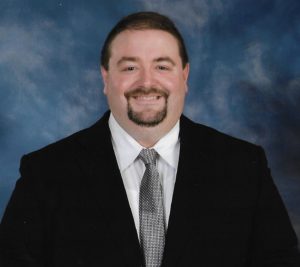 Brian G. Chilton is the founder of Bellator Christi.com and is the host of The Bellator Christi Podcast. He received his Master of Divinity in Theology from Liberty University (with high distinction); his Bachelor of Science in Religious Studies and Philosophy from Gardner-Webb University (with honors); and received certification in Christian Apologetics from Biola University. Brian is currently in the Ph.D. program in Theology and Apologetics at Liberty University. Brian has been in the ministry for over 15 years and serves as the pastor of Huntsville Baptist Church in Yadkinville, North Carolina.
Brian G. Chilton is the founder of Bellator Christi.com and is the host of The Bellator Christi Podcast. He received his Master of Divinity in Theology from Liberty University (with high distinction); his Bachelor of Science in Religious Studies and Philosophy from Gardner-Webb University (with honors); and received certification in Christian Apologetics from Biola University. Brian is currently in the Ph.D. program in Theology and Apologetics at Liberty University. Brian has been in the ministry for over 15 years and serves as the pastor of Huntsville Baptist Church in Yadkinville, North Carolina.
Notes
[1] Luis de Molina, “On Divine Foreknowledge,” Concordia IV.49.8, in On Divine Foreknowledge: Part IV of the Concordia, Alfred J. Freddoso, trans. (Ithaca, NY; London, UK: Cornell University, 1988), 115-116.
© 2018. BellatorChristi.com.

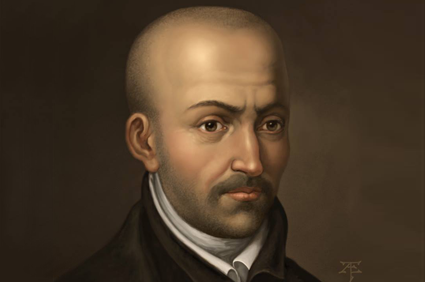


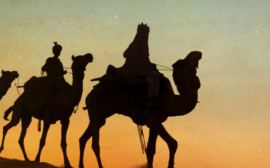
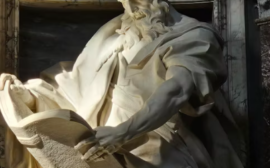
[…] Source: What is Molinism? […]